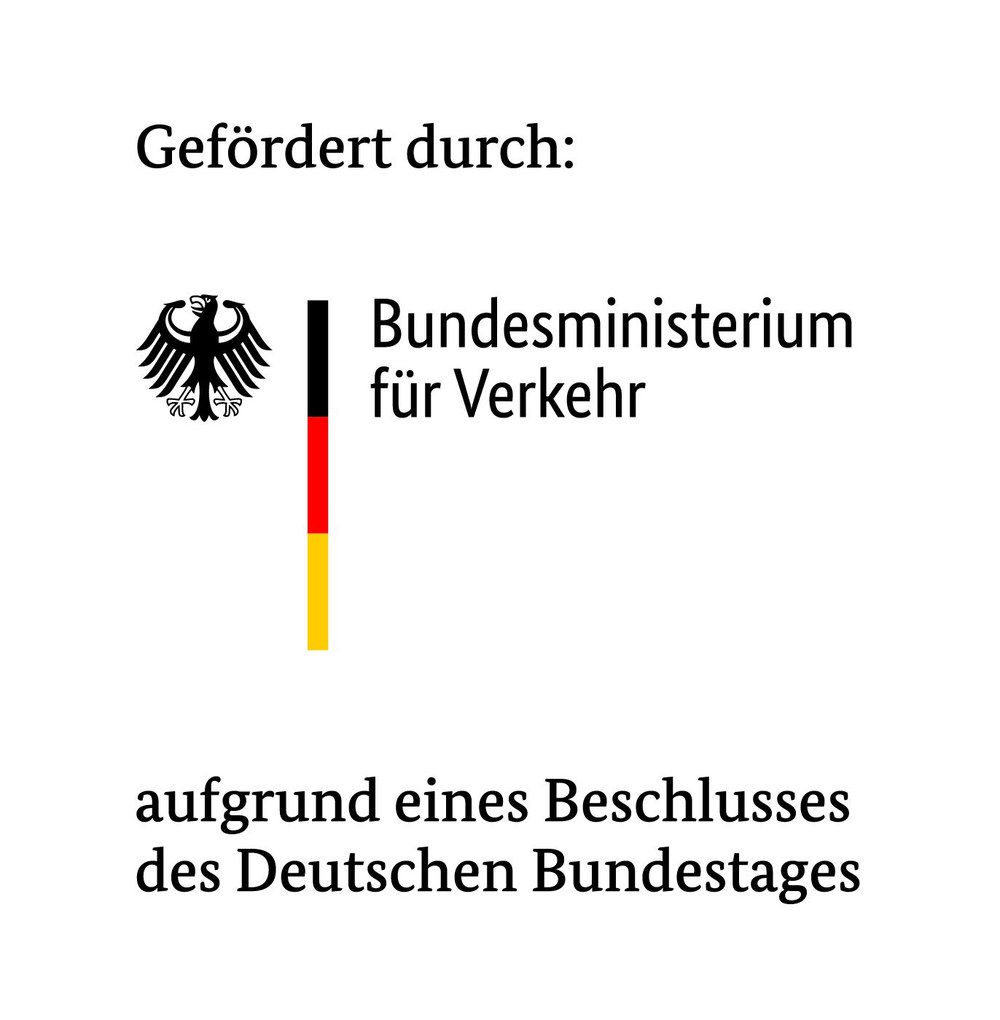AeM-Speedport

The aim of the AeM-Speedport project is to test autonomous and connected vehicles for ground operations at airports. This should increase safety and efficiency and reduce CO2 emissions, as aircraft will no longer have to roll to their take-off position under their own power. The German Aerospace Center's Institute of Flight Guidance is involved in defining the requirements, implementing them and creating and validating the necessary operating concepts and systems.
Project approach
Sustainable mobility is the future of the aviation industry. The autonomous manoeuvring of aircraft at airports without engines running will play a key role in this. Similar to the automotive industry and public transport, the autonomous manoeuvring of aircraft on the ground will be an important factor in enabling airports and airlines to make their contribution to climate protection legislation and thus save significant amounts of CO2 emissions. In addition, the introduction of autonomous manoeuvring of aircraft can contribute to considerable time savings in flight operations and increases safety on the apron, as collisions can be avoided.
Project objective
The aim of the project is to realise a remote-controlled pushback without an operator on the ground in the gate area. The aircraft will be moved from its parking position to a predetermined position on the taxiway - initially by remote control and later autonomously. The process is monitored using highly sensitive sensors and radar technologies. In addition, intelligent communication and control systems are developed to support controllers with the new processes.
Implementation
The project participants will develop new standard procedures that are necessary for the implementation of automated and autonomous manoeuvring of aircraft, taking into account requirements, acceptance and necessary transformation processes. These procedures will then be described in detail and standardised internationally. They are necessary for the implementation and operational use of automated pushback processes and form the basis for all necessary technical procedures for the remote-controlled pushback of aircraft. To this end, a cloud environment is planned to be used for all digital solutions at Paderborn Airport. Finally, the feasibility of the developed and tested solutions will be examined as part of a proof of concept (PoC) in order to develop business cases.
Contributions of DLR
Core objective of the project is the realisation of an autonomous pushback of an aircraft using an innovative human-machine interface to support the air traffic controller in this process. The Institute of Flight Guidance is supporting the project in defining requirements, during the technical implementation and in the creation, validation and demonstration of the necessary operating concepts and systems. Amongst other things, the speech understanding technology for radio communication developed at the Institute is being adapted to the operating environment at Paderborn/Lippstadt Airport, which is being analysed in the project, and tested there. The new developments will be validated both in the Institute's apron and tower simulator and at Paderborn/Lippstadt Airport. This the project will also focus on the change of roles and tasks of human operators through the use of automation.

BMV
Project consortium
The consortium, consisting of the partners LNC LogisticNetwork Consultants GmbH, Flughafen Paderborn/Lippstadt GmbH, ADB Safegate Germany GmbH, TowFLEXX GmbH, MovingPositions GmbH, EML Speech Technology GmbH, Swiss IT Security Deutschland GmbH, Paderborn University, Ostwestfalen-Lippe University of Applied Sciences and the German Aerospace Center, is being funded by the BMV with around 10.7 million euros.
Key data
Project | AeM-Speedport |
Participants | LNC LogisticNetwork Consultants GmbH Flughafen Paderborn/Lippstadt GmbH ADB Safegate Germany GmbH TowFLEXX GmbH, MovingPositions GmbH EML Speech Technology GmbH Swiss IT Security Deutschland GmbH Universität Paderborn Technische Hochschule Ostwestfalen-Lippe DLR |
Duration | 2024 – 2026 |
Funding | BMV |
Website |
